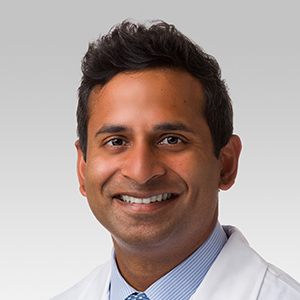Gay and Bisexual Men's Urology
Gay and Bisexual male urology patients face various barriers to quality healthcare, ranging from heteronormative clinical attitudes, a paucity of knowledge on urologic health outcomes and lack of trust. The Gay and Bisexual Men's Urology Program strives to improve urologic care for gay and bisexual men through patient care, education, research, community engagement and advocacy. We research healthcare needs, disparities and outcomes and translate our findings towards providing culturally competent and affirmative urologic care.
Although Gay and Bisexual men experience the same urologic conditions, they experience unique aspects of each condition. Some common conditions include:
- Erectile dysfunction
- Benign prostatic hyperplasia (an enlarged prostate) causing difficulty with urination
- Prostate cancer
- Kidney stones
- Peyronie’s disease (penile curvature)
- Low testosterone
- Testicular pain
While the problems affecting gay and bisexual men are similar to those that impact heterosexual cis-men, these patients often benefit from different approaches to care.
Led by Channa Amarasekera, MD, the Northwestern Medicine Gay and Bisexual Men’s Urology program was created to improve the urologic care experience, outcomes and quality of life for patients who were assigned male at birth (AMAB) and identify as gay or bisexual.
The first of its kind in the United States, we developed this program after our research showed that there were unmet needs among gay, bisexual, transgender and other sexual minority patients. We created this program to meet the needs of gay and bisexual male (GBM) urology patients.
Our Goals:
- Trust and Affirmation: To implement a clinical practice that is inclusive and affirmative to all patients, where patients feel comfortable speaking about their sexual and urologic health
- Research: To conduct research to uncover aspects of urologic conditions specific to sexual minorities and empower physicians and patients to make informed treatment decisions
- Education: To develop and utilize educational resources that are relevant to the experiences of sexual minorities
Selected Media
In this podcast, Dr. Amarasekera discusses prostate cancer treatment considerations for gay and bisexual men. He shares his published study assessing areas of sexual function predicted to be important after treatment and what other urologists need to know about when caring for gay and bisexual patients with prostate cancer.
In this video, Channa Amarasekera, MD, talks about his recent study examining urologists’ knowledge and attitudes toward patients in sexual minorities and how the Northwestern Medicine Gay and Bisexual Men’s Urology Program is working to reduce these disparities and improve gay and bisexual men’s urologic health.
In this video, Dr. Channa Amarasekera and Dr. Adam Murphy, Assistant Professor of Urology and Preventive Medicine (Cancer Epidemiology and Prevention), host a groundbreaking webinar that highlights the unique challenges faced by gay and bisexual men when it comes to prostate cancer.
Channa Amarasekera, MD, discusses his research on the impact of sexual orientation on treatment decision-making and perceptions of sexual side effects from prostate cancer. Watch to learn more.
Research
Dr. Amarasekera’s research focuses on health outcomes in urology for men who have sex with men. His current research interests focus on identifying and addressing urologic healthcare disparities faced by members of sexual minorities.
Selected Publications
A Pilot Study Assessing Aspects of Sexual Function Predicted to Be Important After Treatment for Prostate Cancer in Gay Men: An Underserved Domain Highlighted. Amarasekera C, Wong V, Jackson K, Yura E, Patel M, Manjunath A, Kundu S. LGBT Health. 2020 Jul; 7(5): 271-276.
Prostate cancer in sexual minorities and the influence of HIV status. Amarasekera C, Wong V, Yura E, Manjunath A, Schaeffer E, Kundu S. Nat Rev Urol. 2019 Jul; 16(7): 404-421.
Patient Care
We tailor care and resources to the needs of these patients. This allows us to provide an inclusive environment where patients can openly and comfortably discuss their sexual orientation and sexual health with their care team. These are key factors in the treatment decision-making process. Our healthcare team works to understand what is important to patients. They respect these priorities when suggesting treatment options.
The Northwestern Medicine Gay and Bisexual Men’s Urology Program is designed to improve the urologic care experience, outcomes and quality of life for patients who were assigned male at birth (AMAB) and identify as gay or bisexual. We care for patients in a respectful, safe space, backed by research.
